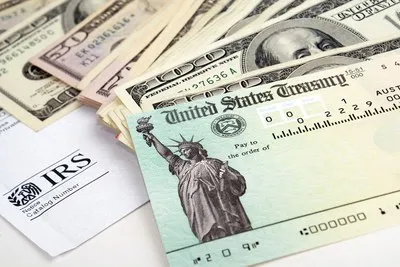Should tax brackets be tied to inflation? This NJ bill would do just that

As residents grapple with the worst inflation rates in decades, New Jersey lawmakers are pushing a bill that could give residents a break by taking rising rates into account during tax season.
The bill approved by the Senate Budget and Appropriations Committee last week would allow adjustments of income thresholds for each state tax bracket, based on inflation.
Republican officials said the savings would be case-specific because they depend on how close a person is to the threshold of the next tax bracket and how far a cost-of-living allowance puts them into the new bracket.
Savings would be cumulative because the taxpayer would continue paying the lower rate on that income year after year.
Not every taxpayer would be affected, because the change is intended to help taxpayers near bracket thresholds who are being pushed into higher brackets due to inflation.
Tax relief:Murphy pitches ‘significant’ property tax relief program, with rebates averaging $700
NJ news:Murphy lifts COVID public health emergency as state surpasses 30K deaths
The nonpartisan Office of Legislative Services estimates that the bill would reduce annual gross income tax revenues between $150 million and $440 million in the first full fiscal year in which it is effective, and amounts would compound each fiscal year thereafter.
The bill, proposed by Sens. Anthony Bucco, R-Morris, and Steven Oroho, R-Sussex, is not new to Trenton. The senators first introduced an iteration of this bill in 2016, and they have tried to get it passed in every session since.
“The impact of inflation and the loss of buying power coupled with paying more in taxes really sets our residents behind,” Bucco said. “The federal government has been doing it for over 40 years. It’s been over 30 years since we’ve seen a reduction in any of our income tax brackets, and it’s my understanding that 60% of our residents live paycheck-to-paycheck, and by giving them this small break it will give them some hope.”
Senate Majority Leader Teresa Ruiz, D-Essex, abstained from voting on the bill because she had some concerns. She called the bill well-intentioned but had questions about potential unintended consequences.
“I think this is a well-intended bill because we want to put more money in everyone’s pocket and to keep up with the cost of inflation and everything that’s happening around us,” she said. “My concern is: Does it have an unintended consequence to a municipality that potentially is cash-strapped, or does a school budget depend on this money that gets pulled, and then that district, even though that household might be getting $100 extra for that year, then the municipality and/or the school district has to raise their tax levies?”
The bill got mixed reviews outside of the Senate chambers as well. Sheila Reynerston of the New Jersey Policy Perspective think tank called for the Legislature to seek more clarity on the bill, but said that on the surface it appears to be the right thing to do.
“The very small tax cuts for everyday families must offset the sizable revenue loss left unaddressed,” she said. “This proposal would drain up to a half a billion dollars in funding for public services, which leads to layoffs and brutal cuts. With no other way to raise revenue, municipalities would be forced to raise fines or fees. These are the kinds of changes that are always regressive, falling most heavily on low-income residents who are disproportionately people of color.”
But Garden State Initiative’s president, Regina Egea, said 37 other states index their income tax brackets to inflation and the move would “enhance New Jersey’s competitive standing by moving us closer to other states and reduce the tax burden for our residents.”
“Across the country, red states and blue states alike are taking advantage of surging revenues to reform their tax codes,” Egea said. “In a state like New Jersey, where the governor and Legislature claim affordability is at the top of the agenda and revenues are billions ahead of estimates, there’s no reason we can’t offer meaningful relief in the form of eliminating ‘bracket creep.’ ”
The bill still needs to pass the Senate and the Assembly before making its way to Gov. Phil Murphy’s desk. Another potential tax change that has already passed the whole Senate would provide additional income tax relief for tenants by increasing what’s known as the “rent constituting property taxes” from 18% to 30%.
This bill, sponsored by Sen. Troy Singleton, D-Burlington, and Senate President Nicholas Scutari, D-Union, would allow renters to deduct more of what they pay in rent each year toward their taxes.
The state already allows renters to treat the rent they pay as property taxes and deduct a fraction of that payment, which then lowers what they owe the government. The amount they would be allowed to deduct would increase.
The change could cost the state $82.6 million to $130.5 million a year, according to an estimate by the Office of Legislative Services.
